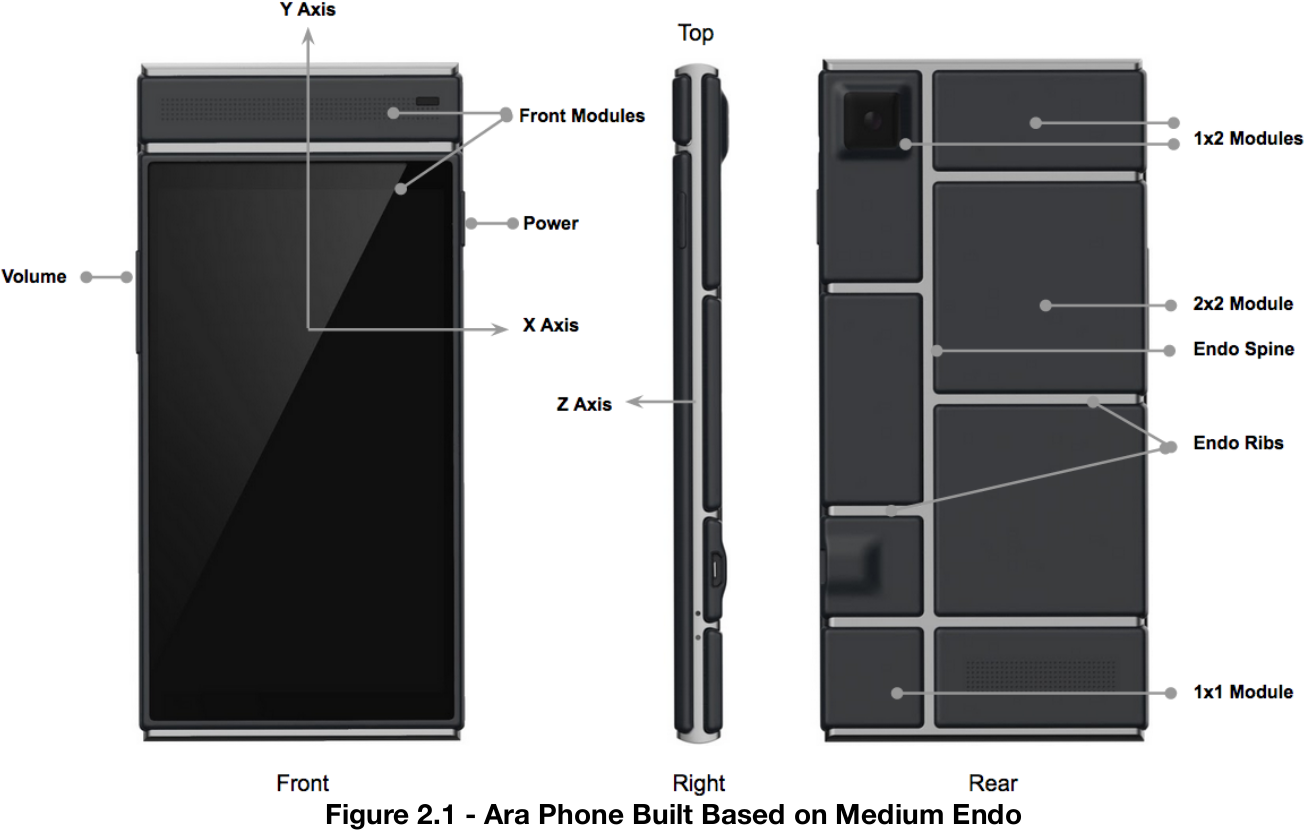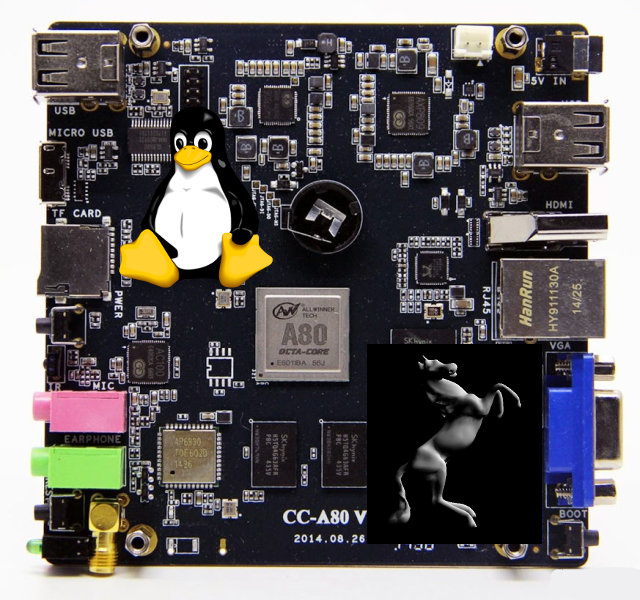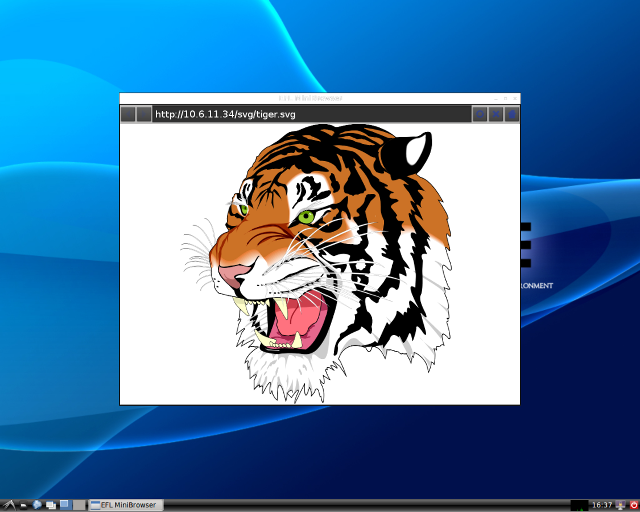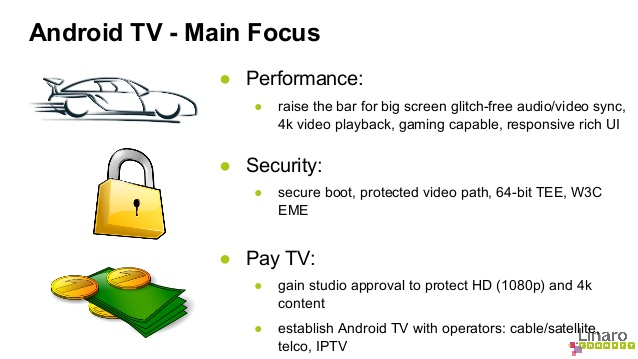The modular phone concept started with PhoneBloks, whose founders shortly got to work with Motorola Project Ara, and since Google bought parts of Motorola, the concept is now part a Google’s project. Project Ara Developers Conference 2015 has taken place yesterday in California, but if you’ve missed it, another one is planned in Singapore on January 21, and it will also be live-streamed. We’ve now got a bit more information, a neat video has been uploaded to YouTube showing how a battery, a (broken) display, speakers, and camera modules would slide into the phone, and a pilot project has started in Puerto Rico. Google has very recently shipped Spiral 2 developer hardware enable prototyping and development of modules for the Ara platform. The kit consists of: A board with the UniPro Switch in the Ara endoskeleton and multiple modules interfaces with UniPro Bridge ASICs (Tosbiba T6WM8XBG-0001) supporting multiple bridged and tunneled protocols; An […]
3D Graphics Acceleration in Linux on Allwinner A80 based Cubieboard4
Allwinner A80 is a powerful octa-core processor found in development boards and TV boxes such as Cubieboard4 or Tronsmart Draco AW80. Some early Ubuntu images and instructions had already been released for A80 Optimusboard and Draco AW80, but none of these featured GPU drivers for 3D acceleration, which to be honest, has limited advantages in Linux desktop distributions since desktop environments and most apps require full OpenGL support, i.e. not only OpenGL ES, and the only ARM SoC that can provide OpenGL support without external graphics card is Nvidia Tegra K1 SoC. Having said that GPU drivers would pave the way for smooth OpenELEC / Kodi user interface support in Allwinner A80 Linux distributions. That’s only one part of the puzzle, since the GPU normally handles the user interface, while the VPU takes care of video decoding. The good news is that CubieTech release updates images for their Cubieboard4 (CC-A80) […]
TyGL OpenGL ES 2.0 Backend for WebKit Speeds Up Web Rendering by Up to 11 Times
ARM, Szeged University in Hungary, and Samsung Research UK have been working on TyGL, a new backend for WebKit accelerated with OpenGL ES2.0, and developed and tested on ARM Mali-T628 GPU found in Samsung ARM Chromebook. It will typically provide 1.5 to 4.5 times higher performance, but in the best cases, it can achieve up to eleven times the performance of a CPU-only rendered page. The key features of TyGL include: Web rendering accelerated by GPU – Batching of draw calls delivers better results on GPUs. TyGL groups commands together to avoid frequent state changes while calling the Graphics Context API. Automatic shader generation – TyGL generates complex shaders from multiple shader fragments, and ensures the batches fit into the shader cache of the GPU. Trapezoid based path rendering – Work in progress. It will leverage GPU capabilities such as the Pixel Local Storage extension for OpenGL ES. No software […]
Linaro 14.12 Release with Linux 3.18 and Android 5.0
Linaro usually releases images and source code on the last Thursday of the month, but since most people will have long holidays for Chritsmas and New Year, the last working Thrusday of this month was yesterday (18th). Linaro 14.12 release includes Linux kernel 3.18 (baseline), Linux 3.10.62 & 3.14.26 (LSK, same versions as last month), and Android 5.0.1 Lollipop. Here are the highlights of this release: Linux Linaro 3.18-2014.12 Based on v3.18 release GATOR topic: version 5.20 updated topic from Qualcomm LT (includes IFC6410 board support) updated integration-linaro-vexpress64 topic by ARM LT (FVP Base and Foundation models, and Juno support) updated LLVM topic (uses the community llvmlinux-latest branch) included ILP32 patch set v3 rebased on 3.18. Boot tested with aarch64 userland. Work is in progress to test with aarch64-ilp32 userland. config fragments updated – SELinux related config options enabled in linaro-base.conf, device tree runtime self tests enabled in distribution.conf Linaro […]
Linaro 14.11 Release with Kernel 3.18, Android 5.0, & Ubuntu Utopic. Debian 8.0 Gets ARM64 Port
Linaro 14.11 has been released with Linux kernel 3.18-rc5 (baseline), Linux 3.10.61 & 3.14.25 (LSK, same versions as last month), and Android 4.4.2, 4.4.4, and for the first time Android 5.0 Lollipop. There’s also been some news with regards to Linux desktop distributions, as Ubuntu baseline has been upgraded to Utopic (14.10), and Debian 8.0 (Jessie) will officially support ARM64 with 93% of packages built as of November 5th. Android Lollipop images are said to be built for TC2, Juno, Nexus 7, Nexus 10, and FVP models, but I could not find the images. Finally, it’s the first time I’ve noticed Hisilicon X5HD2 development board with a dual core Cortex A9 processor, but apparently it’s the same as Hi3716cv200. Here are the highlights of this release: Linux Linaro 3.18-rc5-2014.11 updated GATOR to version 5.20 updated topic from Qualcomm LT (include IFC6410 board support) updated integration-linaro-vexpress64 topic by ARM LT (FVP […]
Linaro 14.10 Release with Kernel 3.17 and Android 4.4.4, Debian ARM64 Port Almost Complete
Linaro 14.10 has just been released with Linux kernel 3.17 (baseline), Linux 3.10.54 & 3.14.19 (LSK, same versions as last month), and Android 4.4.2 & 4.4.4. Most of the work is a continuation of previous months working member hardware, and ARM64, but one particularly interesting point is that 90% of Debian packages have been built for ARM64, and the next version of Debian should have an official ARM64 port. Here are the highlights of this release: Linux Linaro 3.17-2014.10 updated linaro-android topic. In particular, CONFIG_IPV6=y is no longer the requirement for linux-linaro tree builds GATOR version 5.19 (same version as in 2014.08 release). gatord is fixed to build for ARMv8. dropped multi_pmu_v2 topic by ARM LT (no longer used) updated topic from Qualcomm LT (include IFC6410 board support) replaced integration-linaro-vexpress topic by integration-linaro-vexpress64. Starting from 2014.10 release, linux-linaro kernel tree will use the mainline support for 32-bit vexpress boards. integration-linaro-vexpress64 […]
Linaro 14.09 Release with Kernel 3.17 and Android 4.4.4
Linaro 14.09 has just been released with Linux kernel 3.17-rc4 (baseline), Linux 3.10.54 & 3.14.19 (LSK), and Android 4.4.2 & 4.4.4. Linaro has kept working on their member boards such as IFC6410 (Qualcomm), D01 (Huawei/Hisilicon), Ardnale (Samsung), and Juno (ARM). They’ve also announced they’ll change the tools to build GCC by using cbuild2 instead of cbuild1 for next release, and they’ve enabled a build with gcov (for code coverage analysis) which may mean they’ll work on reducing the kernel size by getting rid off unused code. I’ve also noticed the Arndale and Arndale Octa Ubuntu images are now based on Linux LSK with Mali GPU support since last month. Here are the highlights of this release: Linux Linaro 3.17-rc4-2014.09 GATOR version 5.19 updated topic from Qualcomm LT (ifc6410 board support) and HiSilicon LT updated Versatile Express ARM64 support (FVP Base and Foundation models, Juno) from ARM LT. updated Versatile Express […]
Android TV Overview – Linaro Connect US 2014
Google announced Android TV and ADT-1 devkit last June, as the company wants to bring user-friendly Android user-experience to TVs, set-top boxes and game consoles. Mark Gregotski, head of the Linaro Digital Home Group (LHG), has provided a technical overview of Android TV during the on-going Linaro Connect US 2014. You find a summary of yesterday sessions on Linaro’s blog, and the even will last until Friday, where several demos will be showcased. SoC companies currently involved in Android TV include Nvidia, Marvell, Qualcomm, Mediatek, Intel, Broadcom, and ST micro, so none of usual Chinese Android TV Box players (Rockchip, Amlogic, AllWinner…) are represented. Android (for smartphone) currently support video playback but you may experience dropped frame from time to time, where in the STB market requirements are not stringent. For example, NTT is said to only allow one frame dropped per month! So Android TV aims to improve video […]







